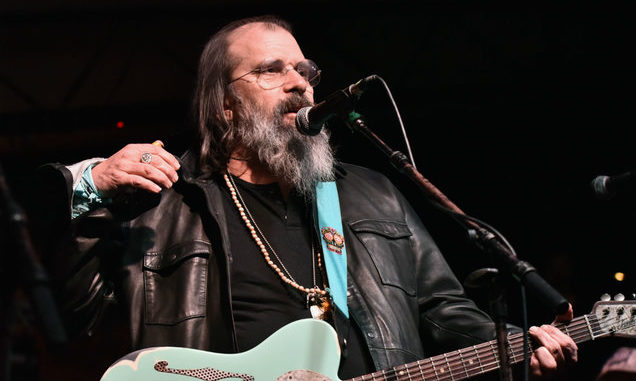
By John M
From performing with Bruce Springsteen to portraying a recovering addict in The Wire, Steve Earle’s journey has taken him across the most iconic stages of modern American culture. Although the alt-country icon never became a household name, his distinctive voice has a way of cutting through the noise of the Americana-rock scene. A bonafide tortured artist who has been through multiple drug addictions and seven marriages, Earle’s lyrics draw on life’s uncertainties; but when it comes to politics, he leaves little room for ambiguity, describing himself as a lifelong socialist.
In the spirit of Springsteen’s Nebraska, a desolate folk record inspired by the writings of leftist historian Howard Zinn, Earle’s songs tell the stories of Middle America’s forgotten and voiceless underclass. “Billy Austin” deals with capital punishment and the criminal justice system from the viewpoint of an Oklahoma death row inmate recalling his sentencing: “Court appointed lawyer, couldn’t look me in the eye, he just stood up and closed his briefcase when they sentenced me to die.” Earle has a talent for placing himself in the shoes of society’s most abhorred members and telling their side of the story. He ignited controversy and received death threats in the jingoistic years following 9/11 for releasing a song called “John Walker’s Blues,” sung from the viewpoint of John Walker Lindh, an American who joined the Taliban.
Also a novelist and actor, Earle was in a performance of Howard Zinn’s Voices of a People’s History of the United States, as well as HBO’s The Wire. In the latter, he played an ex-heroin user in a 12-step program, a character rooted in Earle’s own experiences with addiction and recovery. Earle says of the role, “That didn’t require any acting: I was playing a redneck recovering addict.” His novel, I’ll Never Get Out of This World Alive, explores the topic of abortion access through the lens of class analysis.
Although he generally ends up voting for Democratic candidates, and supported Bernie Sanders’ 2016 campaign, he adamantly describes himself as a socialist and “not a Democrat.” Despite years of steady success, Steve Earle is not destined to become another aging “#resistance” rock star, like, say, his alt-country colleague Jason Isbell. His lyrical themes address society’s problems in a materialist context, often focusing on the dichotomy of the “haves” and the “have nots.” He puts it best in “The Revolution Starts Now,” with “the revolution starts here, where you work and where you play, where you lay your money down.”
